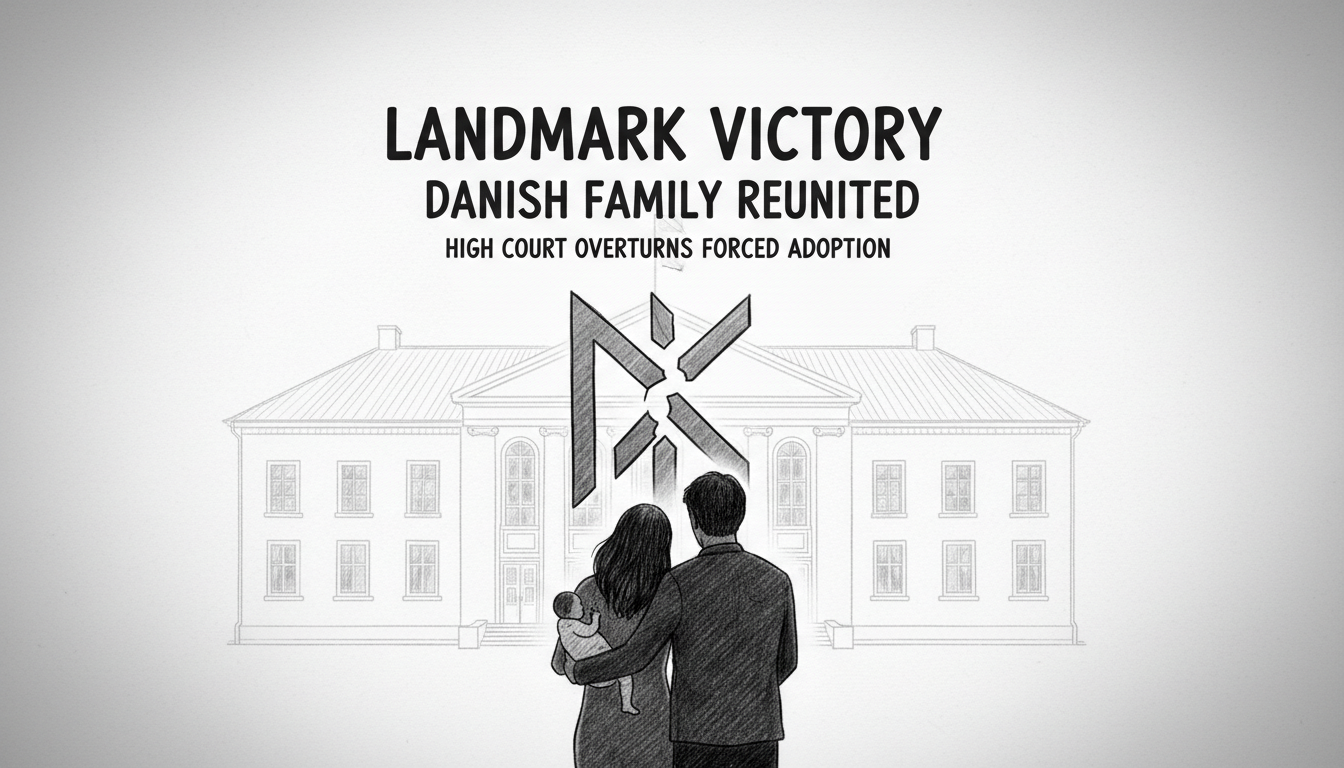A Danish couple from Brønderslev has achieved a rare legal victory after the High Court overturned authorities' decision to forcibly adopt out their newborn son. The child was taken from Kristina and Kim Nielsen just after birth, and the parents have spent only eleven total hours with their now two-year-old son over the past two years.
The case represents a significant challenge to Denmark's child protection system and highlights ongoing concerns about forced adoptions in the Nordic country. The High Court found insufficient documentation to support the original claim that the parents couldn't properly care for their child.
Kim Nielsen described the experience as incredibly difficult. We would never wish this on any other parents, he said. The emotional toll has been immense, knowing we have a son but being kept completely in the dark about his wellbeing.
The removal was initially justified by claims that Kim Nielsen behaved threateningly toward hospital staff during birth. Medical personnel later denied these allegations, raising questions about the case's foundation.
The family's lawyer, Daniela Madsen, called the situation frightening. She suggested authorities seemed determined to pursue adoption from the beginning. They deprived these parents of any chance to demonstrate their capabilities, Madsen stated.
This marks only the second time Denmark's High Court has overturned a forced adoption decision. The rarity of such rulings underscores the systemic challenges parents face when challenging child protection decisions.
Brønderslev Municipality's mayor, Mikael Klitgaard, expressed regret about the court's rejection of their assessment. He acknowledged the need for improvement but cautioned that similar cases might still occur in the future within the complex child protection system.
The Danish Institute of Human Rights previously issued recommendations in 2023 addressing forced adoption practices. Their report called for considering less invasive alternatives before pursuing adoption and strengthening children's rights to maintain contact with biological families after adoption.
Currently, the Nielsen's son remains placed with another family. Authorities will review his case for approximately one more year before making final decisions about permanent placement.
Kristina Nielsen expressed cautious hope about their son's eventual return. My hope is that he comes home as soon as possible, she said. Of course, it must be according to his needs, but I hope he comes home to his real parents.
The case has prompted Brønderslev Municipality to review similar adoption cases in light of the High Court's ruling. Municipal officials stated they will adjust their procedures based on the court's findings.
For international observers, this case reveals tensions within Denmark's much-admired welfare system. While Nordic countries typically score high on human rights indexes, forced adoption practices have drawn increasing scrutiny from European human rights bodies. The Nielsen case demonstrates how even well-intentioned child protection systems can sometimes overreach, with devastating consequences for families.
The outcome remains uncertain for the Nielsen family as they continue their fight for reunification. Their experience raises broader questions about balancing child protection with family preservation rights in social welfare systems worldwide.

